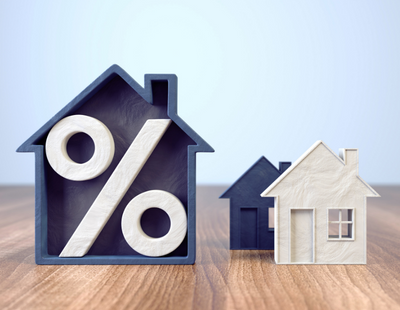Nationwide says the sharp rise in the costs of mortgages is causing a "significant drag" on the housing market - but is not likely to provoke a crash.
Robert Gardner, Nationwide's chief economist, told the BBC's Today programme that mortgage repayments were now taking up almost 40 per cent of people's average take home pay compared to 30 per cent previously. But he says even this has not been too damaging.
"For example, the number of mortgage applications has not yet declined and indicators of consumer confidence have continued to improve, though they remain below long run averages."
Gardner says some 85 per cent of outstanding mortgages are fixed, although that still leaves some 400,000 fixed-rate borrowers refinancing every three months and facing sharp increases.
With mortgage rates hitting 6.0 per cent for a two-year deal, he forecasts a typical monthly payment would rise by £385.
"Clearly this represents a significant increase, but those borrowers were stress-tested at interest rates above those now prevailing in the market to ensure they could cope with such an increase.”
His comments come just as the Nationwide releases its latest house price index which shows that although prices remained broadly flat over the past month, they are now on average down 3.5 per cent over the past 12 months.
All regions except Northern Ireland recorded annual price falls in Q2 and East Anglia was the weakest performing region with prices down 4.7 per cent year-on-year.
Gardner continues: “Longer term interest rates, which underpin mortgage pricing, have increased sharply in recent months, in response to data indicating that underlying inflation in the UK economy is not moderating as fast as expected. This has prompted investors to expect the Bank of England to increase its policy rate further and for it to remain higher for longer.
“Longer term borrowing costs have risen to levels similar to those prevailing in the wake of the mini-Budget last year, but this has yet to have the same negative impact on sentiment. For example, the number of mortgage applications has not yet declined and indicators of consumer confidence have continued to improve, though they remain below long run averages.
“… House prices remain high relative to earnings, and as a result, deposit requirements are still a significant barrier for those looking to enter the market. A 10 per cent deposit on a typical first-time buyer home is equal to around 55 per cent of gross annual income – this is down from the all-time highs of 59 per cent prevailing in late 2022, but still marginally above the levels prevailing before the financial crisis struck in 2007/8.
“[And] despite the higher interest rates available to savers, the sharp rise in rents, together with continued high rates of inflation more generally is continuing to make it difficult for many prospective buyers to save for a deposit.
“Nevertheless, a relatively soft landing is still possible, providing the broader economy performs as we (and most other forecasters) expect. Labour market conditions are expected to remain relatively robust, with the unemployment rate remaining below five per cent, while income growth is projected to remain solid.
“With Bank Rate likely to peak in the quarters ahead, longer term interest rates should also start to fall back. As a result, a combination of healthy rates of income growth and modest price declines should improve affordability over time, especially if mortgage rates moderate.”













.jpg)





Join the conversation
Be the first to comment (please use the comment box below)
Please login to comment